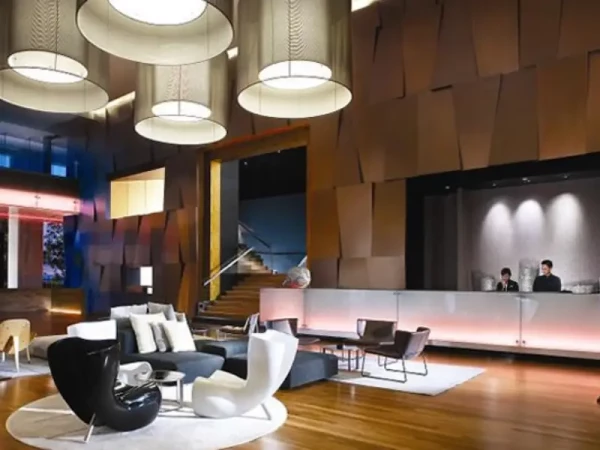Touch Screen for Hotels: Enhancing Guest Experience
Introduction to Touch Screens in Hotels
The hospitality industry is constantly evolving, and hotels are seeking innovative ways to enhance guest experiences and operational efficiency. Touch screen technology has emerged as a game-changer in this regard, revolutionizing the way guests interact with hotel services. In this article, we delve into the versatile applications of touch screens in hotels and their role in shaping modern, seamless, and personalized guest experiences.

Applications of Touch Screens in Hotels
Check-in and Check-out Kiosks
One of the most prominent applications of touch screens in hotels is through self-service check-in and check-out kiosks. These kiosks empower guests to manage their own check-in process, reducing wait times at the reception and creating a smooth arrival and departure experience. Guests can select their room, activate key cards, and even book additional services—all from the touch screen.
Information Kiosks and Concierge Services
Touch screens also serve as interactive information kiosks, granting guests access to useful hotel information such as amenities, dining options, and operating hours. Moreover, these kiosks can provide information about local attractions, events, and restaurants, extending the traditional concierge service with a digital, 24/7 available alternative.
Room Control Systems
Within the guest rooms themselves, touch screens transform the guest experience through integrated room control systems. Guests can control lighting, temperature, television, and even curtains via a touchscreen panel. This technology not only offers comfort and convenience but also enables guests to create a personalized environment tailored to their preferences.
Digital Menu Boards and Ordering Kiosks
Restaurants and bars in hotels leverage touch screens in the form of digital menu boards and self-service ordering kiosks. These systems simplify the process for guests to browse menus, place orders, and even make payments without waiting for service staff. This not only improves service efficiency but also enhances customer satisfaction through quicker service.
Personalization and Guest Engagement
Touch screen software provides hotels with a powerful platform for personalization and guest engagement. By integrating with the hotel management system, touch screens can display personalized welcome messages, recommendations, and offers based on guest preferences and behavior. This level of personalization strengthens the relationship between the hotel and its guests, fostering loyalty.
Challenges and Considerations
The integration of touch screens solutions in hotels also presents challenges, including the need for regular maintenance and updates to keep systems functional and up-to-date. Additionally, there is the issue of hygiene, especially in light of recent health concerns, necessitating regular cleaning and disinfection.
Conclusion
Touch screens are a valuable addition to the hotel industry, offering a range of benefits from enhanced guest experiences to operational efficiency. By investing in this technology, hotels can not only meet the expectations of the modern traveler but also gain a competitive edge in the hospitality market. As technology continues to evolve, touch screens will undoubtedly play an even greater role in redefining the guest experience in hotels worldwide.